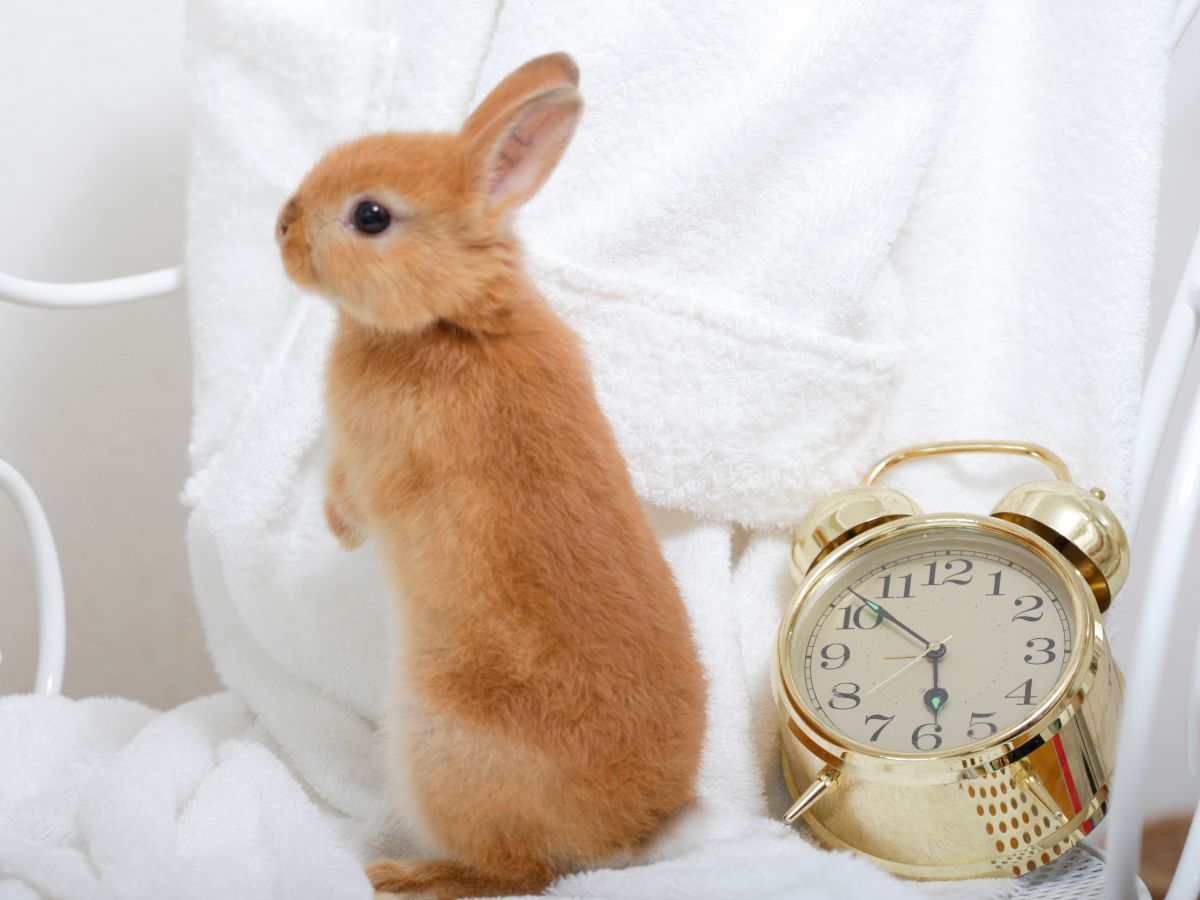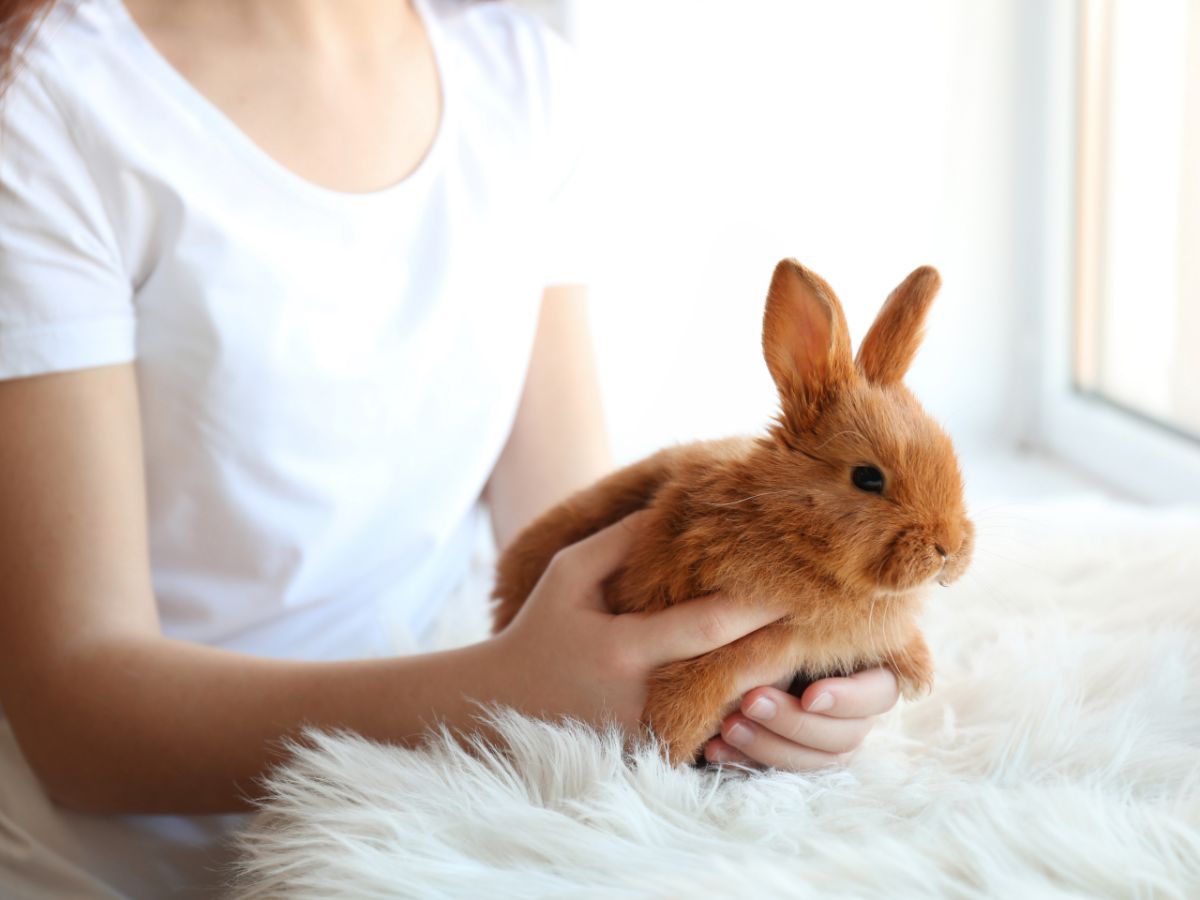Most people regard rabbits as cute and cuddly, and while this might be true, it’s not always the case! even the happiest and friendliest bunnies could become aggressive out of the blue, and when they do, there could be several signs. Why is your bunny aggressive?
Rabbits become aggressive due to poor living conditions, loneliness, or past trauma. Other reasons are hormones, babies, or protecting territory. Rabbits may also become aggressive when in pain if you smell like other animals or startle them. Food-related aggression is also common amongst rabbits.
A rabbit will form an excellent bond with its owner, and they make perfect pets for smaller children as well. However, some things will cause a rabbit to show aggression, like any other animal. Let’s look at why your rabbit has become aggressive, even if it’s not in its nature!
Contents
Aggressive Behavior In Rabbits
If your rabbit shows aggression towards you, it’s usually because they view you as a treat, which could be because of several factors.
Rabbits are usually not known for showing aggression, but even the happiest and healthiest bunny could lunge, nip, or bite at you if they feel uncomfortable or threatened.
To understand why a rabbit is aggressive, it is crucial to understand what is natural for them and to review how you behave around them.
Let’s take a closer look at why your rabbit is aggressive and the possible ways you can correct the behavior before it worsens:
1. A Rabbit Will Become Aggressive Due To Poor Conditions
Rabbits are highly athletic and active, so they need a cage or enclosure to accommodate these needs. If a rabbit is confined to only a tiny area, it won’t be able to live to its fullest potential.
A rabbit needs to jump, forage, run and dig. If they can’t do these things, they will become unhappy and frustrated and even develop health problems.
If you think this is the reason for your rabbit’s aggression, you may need to update their accommodation and see if it makes them happier.
2. A Lonely Rabbit Could Become Aggressive
Rabbits are very social animals and will feel safer amongst other rabbits. A single rabbit doesn’t have the option to rely on a family member or group, which could cause them to become nervous. They will portray the nervousness by showing aggression towards you.
If you think this is the case with your rabbit, getting them a family member will make them feel less lonely, less nervous, and much more confident!
3. A Rabbit With Past Trauma Can Be Aggressive
If you have adopted or rescued a rabbit from a shelter, it may have been uplifted out of a bad place or situation. Sometimes, the rabbit has been abandoned and dealt with traumatizing conditions.
If you have only rescued your rabbit recently, the signs of aggression may be because of the unfamiliar and scary environment.
4. A Change In Hormones Will Make A Rabbit Aggressive
If you have not spayed or neutered your rabbit yet, it is most likely the reason for its aggression. Unspayed rabbits are much more known to be territorial and quicker to become aggressive or irritated.
Both female and male rabbits will show signs of aggression due to their hormones, although female rabbits are known to be more aggressive. Pregnant rabbits may also become aggressive; if you think your rabbit is pregnant, it is most likely the reason for its aggression.
5. A Rabbit With Babies Will Be Aggressive
Although a pregnant rabbit will exhibit signs of aggression, the aggression may worsen when they have given birth. It is in any mother’s instinct to defend their babies, especially with rabbits.
If your rabbit has given birth recently, you need to respect her space and nest, and if she is aggressive, leave her and her babies alone!
6. A Rabbit Who Defends Its Territory Will Be Aggressive
Rabbits are very territorial in general, and they will fight tooth and nail to protect their space, literally! Luckily for most rabbits and their owners, this type of behavior can be fixed by getting them spayed or neutered.
However, there are several rabbits where this is just a typical personality trait. Even after you get them spayed or neutered, they will continue to display this territorial behavior to some extent.

7. Stressed Or Pain-Ridden Rabbits Will Be Aggressive
Sometimes, your rabbit will show aggression towards you if it’s in pain or stressed out. If you know your rabbit is calm and won’t usually bite or scratch you, you should consider making an appointment at your local vet for a check-up.
This becomes especially important if you notice other symptoms of your rabbit being sick, such as smaller poops, a lack of energy, and a decreased appetite.
It may also be a good idea to look around their environment, as rabbits could become stressed due to loud noises or predators.
8. Rabbits Will Become Aggressive If They Smell Other Animals
If you spend your time volunteering at animal shelters or clinics regularly, your best bet would be to shower and put on new clothes before feeding, playing, or cleaning your rabbit’s enclosure.
Although your rabbit may be friendly, it may suddenly become aggressive and territorial over you if you come home and they smell other animals. This could even become worse if you smell like other rabbits!
By showering and cleaning yourself thoroughly before interacting with your rabbit, you will also help minimize the risks of spreading contagious diseases to your beloved rabbit.
9. A Startled Rabbit Can Become Aggressive
Did you know that rabbits are farsighted? They will become startled by anything that happens too quickly in front of them. Rabbits also have a blind spot directly in front of the tip of their nose.
This means that if you make any quick or sudden movements close to your rabbit’s eyes, it will get startled, which may result in you getting scratched or bit.
If you have only recently adopted your rabbit, you may want to practice being gentle and letting it become accustomed to your smell and movements.
10. A Rabbit Can Show Aggression During Feeding Time
If your rabbit only shows signs of aggression during feeding times, it would be best to shift the focus. If you provide your rabbit with pellets, you can shift the focus by not placing the feeding pellets inside a bowl.
Instead, you can sprinkle the pellets across the floor or hide them in a pile of hay. This will encourage your rabbit to eat hay, which is important for a healthy diet, and enable it to forage for the pellets scattered through it!
Conclusion
Aggressive behavior in rabbits could become a concern to owners, especially if the reasons are unknown and the behavior worsens over time.
However, knowing the possible reasons why your rabbit suddenly becomes aggressive, you are already one step closer to resolving the behavior and getting your old and happy bunny back!




